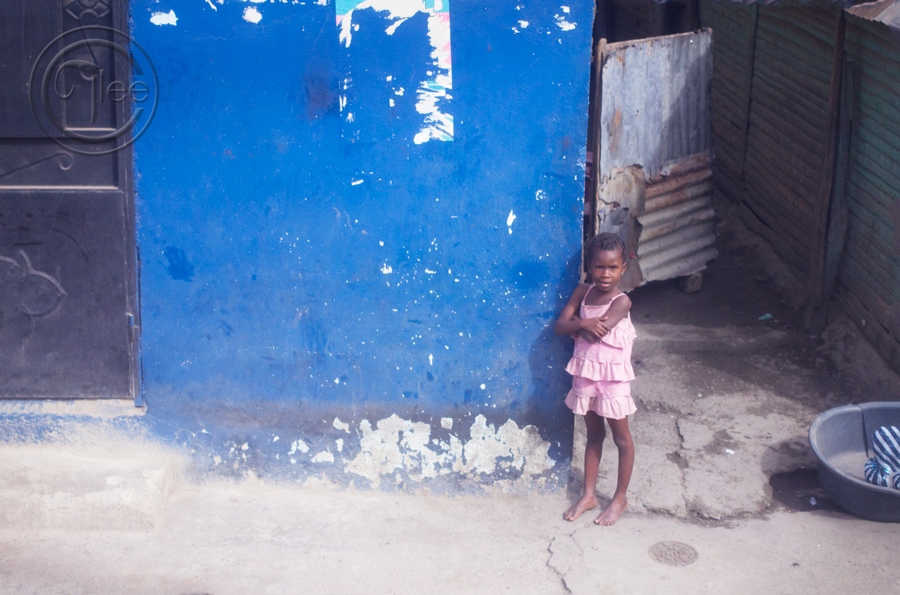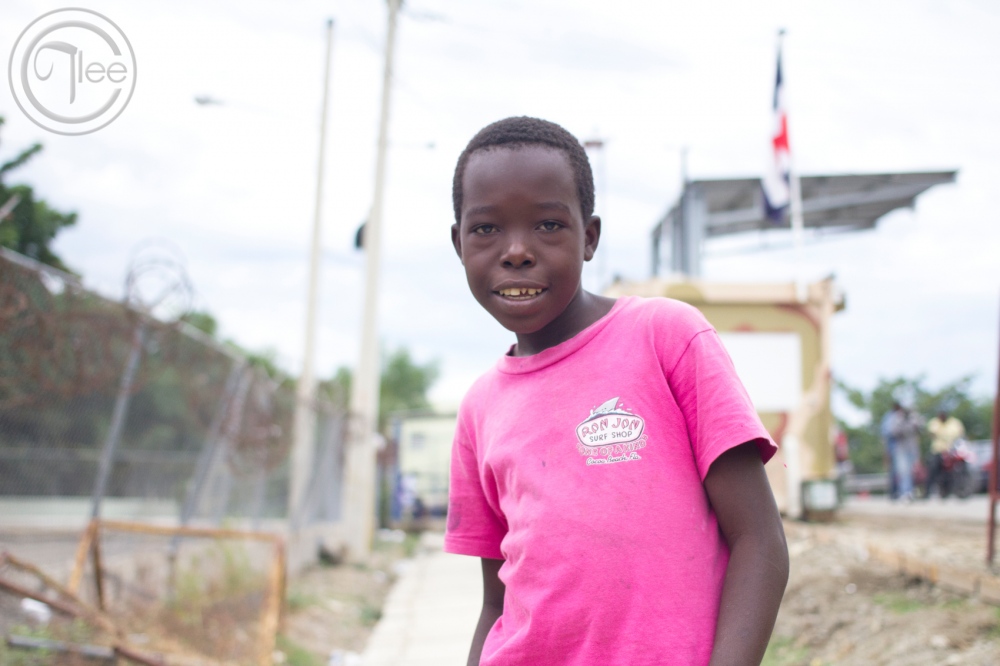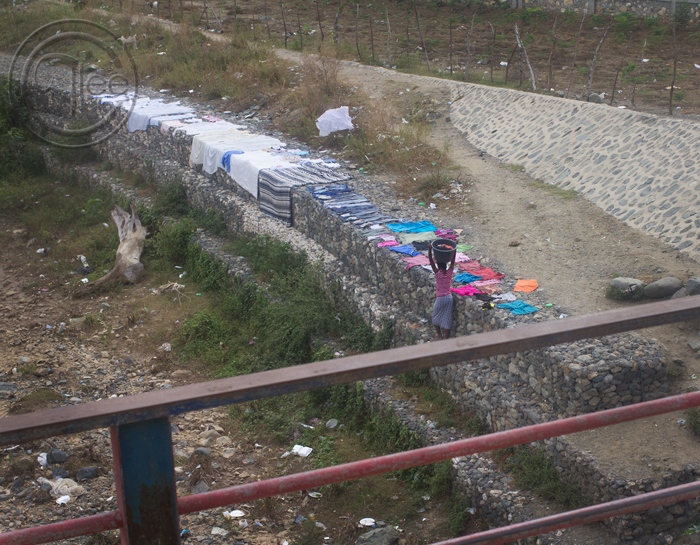SUMMARY:
My project is called BIRTHRIGHT.
It is an ongoing photo exploration that challenges the idea of The American Dream; on a North American and global level. We all place heavy stock in to this idea that success is earned through effort and hard work; that the playing-field of our youth is somehow level and fair. My experiences as an immigrant and travels to under-developed countries like Haiti has shown me otherwise. I've observed that people's opportunities are often curated by chance, depending on the fortune (or misfortunes) of where they are born.
BIRTHRIGHT is a comparison of children from various different socio-economic circumstances. I chose children because they are innocent and unassuming. I wish to compare the similarities of their fresh and capable spirits, and the gravity of where they've landed in life's lottery. How will these differences affect their future?These photos were taken in Northern Haiti, Dominican Republic, residential areas of New Orleans, and high-end areas of New York City.
EXTENDED ESSAY:
VISURA GRANT PROGRAM: "BIRTHRIGHT"
I immigrated to the United States in 2012. Since my arrival, I have experienced first-hand the struggles immigrants face; of limited financial resources, discrimination, and general phobias and misunderstanding of visas and green cards. I follow the restrictions and rules surrounding my working status, but often face disadvantages created by from paranoid and prejudiced employers.
On the other hand, I've also experienced privilege. I am from a developed country (Canada) and have an education and a lengthy working history. I was born to a lower class family, but the social structure of my country afforded me safety nets and opportunities that I would not have had otherwise (like educational resources and healthcare). I've also learned how to make circumstances work through perseverance; I am grateful for these life-lessons, that help me today. I couldn't even imagine what it would have been like for me if English was not my native tongue, or if I had been a refugee from an under-developed country with volatile or dangerous circumstances.
Being aware of American history, I am also sensitive to the advantages I gain through my White Privilege. I think that growing up outside of this context sometimes allows me to observe this dynamic more impartially at times. The area I reside in, West Harlem, has traditionally been culturally diverse and lower socio-economically. However, as Columbia University expands, there is a quiet battle between gentrification and the neighborhood's established residents. I see this dynamic daily; when my train passes 116 Street, and fills with wealthy and trust funded youth, sometimes acting irreverent and entitled. And when 30 year residences of my building get displaced so the landlord can draw more lucrative tenants.
*****
Since my arrival, I've given a lot of thought to the The American Dream. This alluring idea is what drew me to New York in the first place; the well-enforced trope that everything we could possibly want is right at out finger-tips. With enough determination and hard work, everything can be ours. This resonates with me personally because it levels the playing field and I can feel like I really earned my successes. What's not to love about a great rags-to-riches story? It's empowering. It gives us hope.
But I question this idea in practicality. Every day I observe the obvious differences between those that have support systems and those that don't. When we back-track a success story, it "˜s clear that certain buffers and safety-nets have ensured this outcome. They got the great job after attending the ivy-league school; they had the right connections and recommendations to get in to that school; they had a supportive and healthy upbringing that allowed them to focus on their studies; they were raised to think like a winner, etc. etc. Those in less fortunate circumstances need to work exponentially harder to achieve. And, Privilege begets itself. Naturally, those that have want to pass on more opportunity to the people they love. I'm not saying that rags-to-riches isn't possible, but I wonder how common it actually is? I'm not so sure this playing field is actually level.
*****
Last fall I took a highly formative trip to Hispaniola, containing Haiti and the Dominican Republic. In the 1960's, these two countries were practically equal, economically. However, after years of political corruption, mismanagement of ecological resources, and the earthquake of 2010; they could not be farther apart. Dominican is comparatively thriving, while Haiti is in shambles. I met some children in Haiti that exist in heartbreaking circumstances, living in shacks in the forest, having to go to great lengths to find food for their families to survive. Many have lost their parents to disease, and are raising their siblings.
This experience was harrowing. I have travelled to under-developed countries before, but had never seen such dyer conditions. Many people I spoke with told me they were even envious that I had the opportunity to travel, since they could not even leave without extensive paperwork and government permissions. Somehow, these people found the drive to carry on, without hope or means to change their circumstances. Even in the far a desolate regions of the world, The idea of The American Dream is permiating. In this instance, it's both true and untrue. I am certain that any person coming from Haiti would automatically have a better chance here. However, their life would not neccessarily be without struggle. They would face the same hardships that immigrants face, as I mentioned earlier. On the other hand, my own Birthright has afforded me resourceslike clean water from my home. All this has certainly made me understand that I don't actually know struggle... not like these people do.
I began this project after photographing a young boy named Julio at the border crossing. Only one bus crosses each day, and him and his friends meet the travellers with bottles of alcohol to sell, in hopes to get food for their families. He was shy and unassuming, like any 10 year old child. I thought about my own childhood innocence, and what I had done to deserve such a luxury.
BIRTHRIGHT is an ongoing photographic essay, comparing children from different socio-economic circumstances (in North America and globally). I am focusing on children because they once had a clean slate and untouched, beautiful innocence. But, despite the hopeful American Dream, life seems to be more of a cosmic lottery"¦ and the cards we are dealt will have a greater effect on the long term outcomes. What will this mean for their future and what will they endure? I wish to capture the dichotomy of their situation versus their bright and hopeful spirits.
































